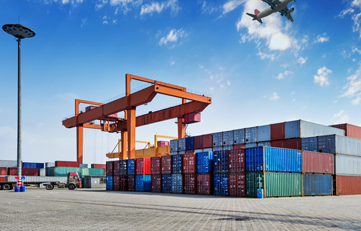
Cargo Insurance – a small price to pay
Did you know that if you have cargo on board a ship that sinks or needs salvaging, the ship owners can declare a condition of general average? Crew members have very little time to respond to an emergency at sea and the condition of general average allows crew to act immediately instead of wasting valuable time.
When this condition is declared, everybody having cargo on board is obliged to contribute towards the cost of salvaging the vessel or the loss of cargo.
‘This can be an extremely costly affair’, warns Jack van der Heijden of the Wangara freight forwarding company Red Nav. ‘I strongly advise that anyone who imports or exports via sea freight takes out marine insurance on every consignment, even when the risk of loss or damage to your goods is minimal. The insurance premiums are commensurately modest’.
Lloyds of London describes ‘The Law of General Average’ as: ‘A loss that arises from the reasonable sacrifice at a time of peril of any part of a ship or its cargo for the purpose of preserving the ship and the remainder of its cargo together with any expenditure made for the same purpose.
An example of a general average loss would include jettisoning cargo to keep a ship afloat and an example of general average expenditure would include towing a stricken vessel into port. An average adjuster calculates the value of each saved interest to each interested party which is then obliged to contribute towards the general average loss or expenditure proportionately.
Subject to the terms of the policy, insurance will generally only apply if the loss was incurred to avoid or in connection with the avoidance of an insured peril.’
This ancient law of general average was first incorporated into a number of national legal systems during the Christian era.
Interpretations of this law varied and efforts were made in the 19th century to impose a measure of uniformity. The York-Antwerp Rules (YAR) codified the law in 1890, and many modernised versions followed. Pressures imposed by cargo insurers resulted in the most recent set of Rules, dated 2004.
When the Rules are incorporated into the contract they will govern the adjustment of general average, irrespective of the relevant law and jurisdiction applicable to international waters or the high seas.
While declarations of general average are not frequent, they do occur regularly. Cargo policies usually provide coverage for general average.
Cargo owners are forced to post a cash deposit with the vessel owner to have the cargo released when all risk or free of particular average (FPA) cargo insurance is not in place.
When general average was declared by the owner of the vessel Hanjin Osaka in January 2012, the cash deposit amounted to 3 percent of the commercial value of the cargo.
Such a deposit can be tied up for two or more years until the general average adjustment is completed. The emergency arose following an explosion in the vessel’s main engine on 8 January 2012 while en route from Pusan (or Busan) in South Korea to ports in the United States, carrying 2 072 containers.
Piracy ransoms can also fall within the scope of general average, but the response of insurers will depend on the debate over ransom legality.
Contact Jack on 08 9303 2110 for any international freight enquiries.

Recent Comments